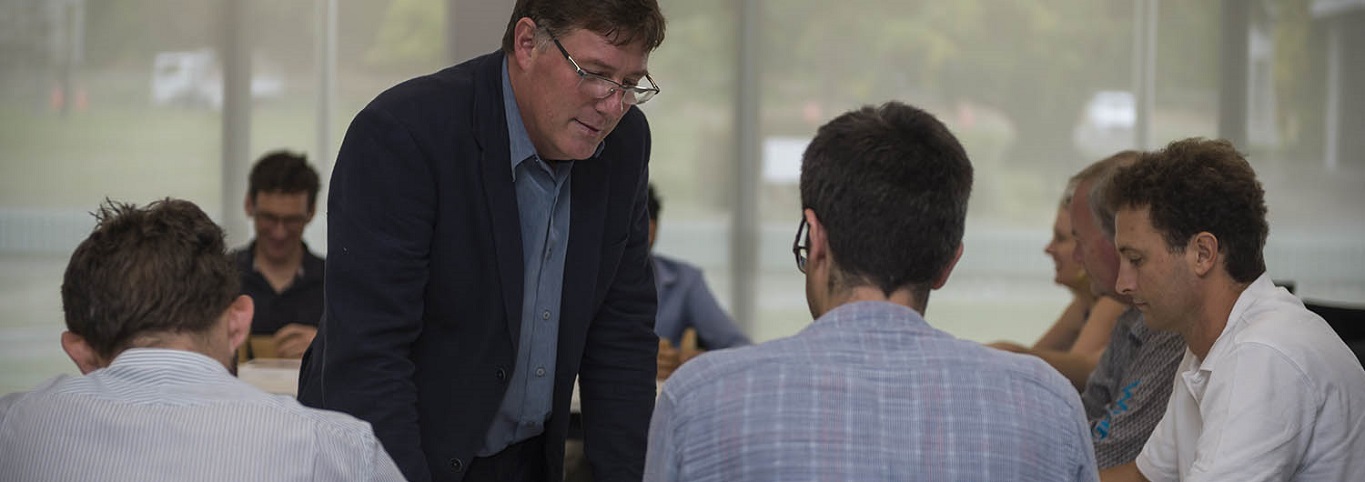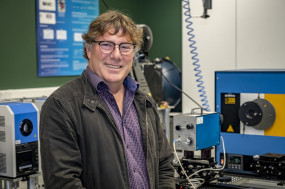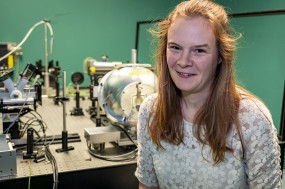Temperature Measurement and Calibration Workshop
Training course
This course covers the use, care, and calibration of liquid-in-glass, platinum resistance, thermocouple, and radiation thermometers. The course is relevant to all personnel who use or check thermometers as a part of testing, installation, or monitoring and maintenance tasks.

Overview
It has been said that more than half of all of the measurements made in the world are temperature measurements. Temperature impacts on our basic comfort, food preparation, transport, medicine, as well as a huge range of high- and low-tech industries.
Despite the large number of measurements, our experience is that as many as one in six thermometers are outside the manufacturer’s specifications. The primary aim of this course is to provide the information that enables users to recognise faulty thermometers and to install and use thermometers correctly.
The course provides a mix of principle and practice with guidelines for designing calibrations and measurements, including lists of things that go wrong, and the tips and tricks for recognising problems. The emphasis is on ensuring that you can apply the knowledge in your own workplace.
Note: This workshop will only proceed with sufficient numbers. If we need to cancel, you will be notified three weeks before the start date.
Course fees:
- $1,290 for each of the first two attendees from an organisation, and
- $903 for each additional attendee
Presenters

Peter Saunders
Distinguished Scientist | Temperature and Humidity
Peter has been working at MSL since 1993 in the area of radiation thermometry, carrying out research in both metrological radiation thermometry and industrial applications. He has worked as a visiting researcher for eight months at IMGC (now INRiM) in Italy, where he investigated the application of CCD cameras to radiation thermometry.
Peter has published more than 70 papers and articles on radiation-thermometry-related topics, and is author of the book Radiation Thermometry: Fundamentals and Applications in the Petrochemical Industry. He won the NZ Royal Society Cooper Medal in 2004 for research he carried out in understanding the physical basis of equations used in the calibration of radiation thermometers. He represents New Zealand on the CIPM’s Consultative Committee for Thermometry (CCT) is an active member of the CCT Working Group on Non-Contact Thermometry.
Scientific highlights for Peter include work on: the size-of-source effect in radiation thermometers, the measurement of non-linearity using a combinatorial technique, analysis of a double-wavelength technique for measuring thermodynamic temperature, calibration equations for radiation thermometers and uncertainty propagation, and reflection errors in industrial radiation thermometry.
Peter is a technical expert for many IANZ accredited thermometry laboratories in New Zealand.

Ellie Molloy
Research Scientist | Light
Outline
The Course is Suitable For:
Any personnel who use or check thermometers as a part of laboratory testing, plant installation, or monitoring and maintenance tasks. Staff involved in laboratory accreditation and QA programmes will find it especially useful.
General Programme and Learning Outcomes
The course focuses on the use, care and calibration of thermometers.
Topics include:
- Temperature, definitions, the ITS-90 temperature scale
- Traceable standards, certificates, uncertainties
- Calibration and use of thermometers
- Liquid-in-glass thermometers, ice-point checks
- Resistance thermometers, instrumentation
- Thermocouples, furnace and oven surveys
- Radiation thermometers
- Surface and air temperature measurements
Course Qualification:
Students will receive a course attendance certificate.
Date and Venue
8 August 2024
Lower Hutt
Callaghan Innovation
Alan MacDiarmid Centre
69 Gracefield Road, Gracefield
Lower Hutt 5010
0800 422 552
- Free Parking
- Report to Reception
- Approximately 45 minutes drive from Wellington Airport and 30 minutes from Wellington CBD
Course Times
- 8:30 am – 9:00 am
Welcome tea and coffee
- 9:00 am – 5:00 pm
This course commences at 9:00 am sharp and is expected to end by 5:00 pm.
Catering
Catering includes Morning Tea and Lunch. Please indicate dietary requirements on the registration form.
